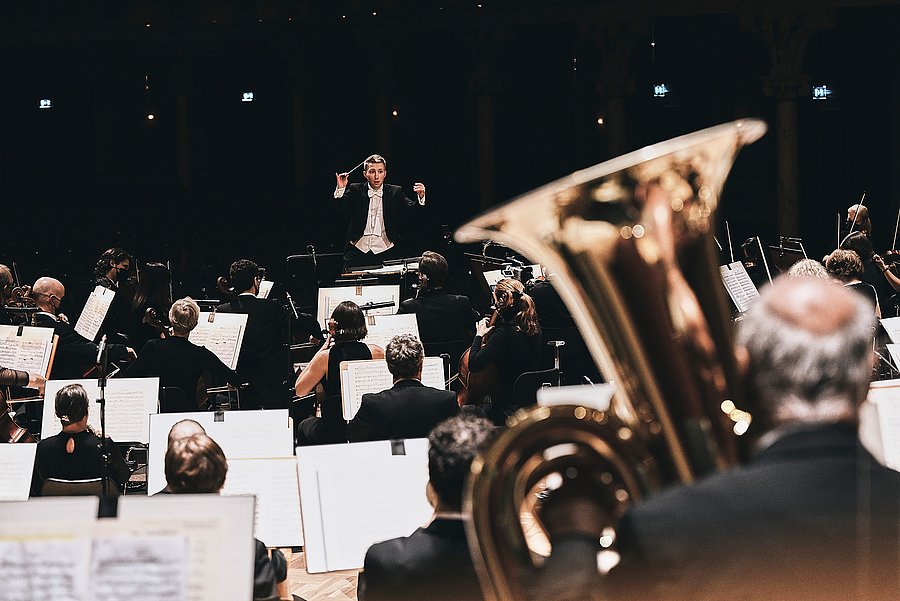Research project
Symphony orchestra in transition

Over 120 professional orchestras from all over Germany are being analysed as part of the research project. The development of the Wuppertal Symphony Orchestra (pictured here is General Music Director Patrick Hahn at his inaugural concert) is also being scrutinised. // Photo Uwe Schinkel
The research project investigates how the repertoire of German orchestras has developed and which orchestras have introduced new features and innovations into their repertoire and to what extent. Particular attention is paid to the career paths of orchestra conductors, which are closely linked to programme decisions. However, the study also includes organisational variables such as performance schedules, finances and personnel, as well as institutional context factors such as the intensity of competition and per capita income.
New insights into the development of the symphonic repertoire
Focusing on the influence of political and social upheavals, such as the division of Germany and reunification, as well as the effects of the coronavirus pandemic, the project offers new insights into the development of the symphonic repertoire and the cultural landscape of Germany.
The project closes an important research gap by compiling and analysing comprehensive data sets on over 120 professional orchestras. Topics such as conformity in the cultural programme and the innovative strength of the orchestras will be investigated using statistical methods.
Sustainable research basis for further studies
The data collected will not only be analysed in scientific publications, but will also be made publicly accessible. The project thus provides a sustainable research basis for further studies on the history of German orchestras and music. Once the project has been successfully completed, the study will be extended to other (European) countries.
The research project under the direction of Prof Dr Thomas Heinze and Prof Dr Mark Lutter (both from the university of Wuppertal) and in cooperation with Barbara Wiermann (Saxon State and Regional Library Dresden) is being funded by the German Research Foundation with around 800,000 euros over three years.
